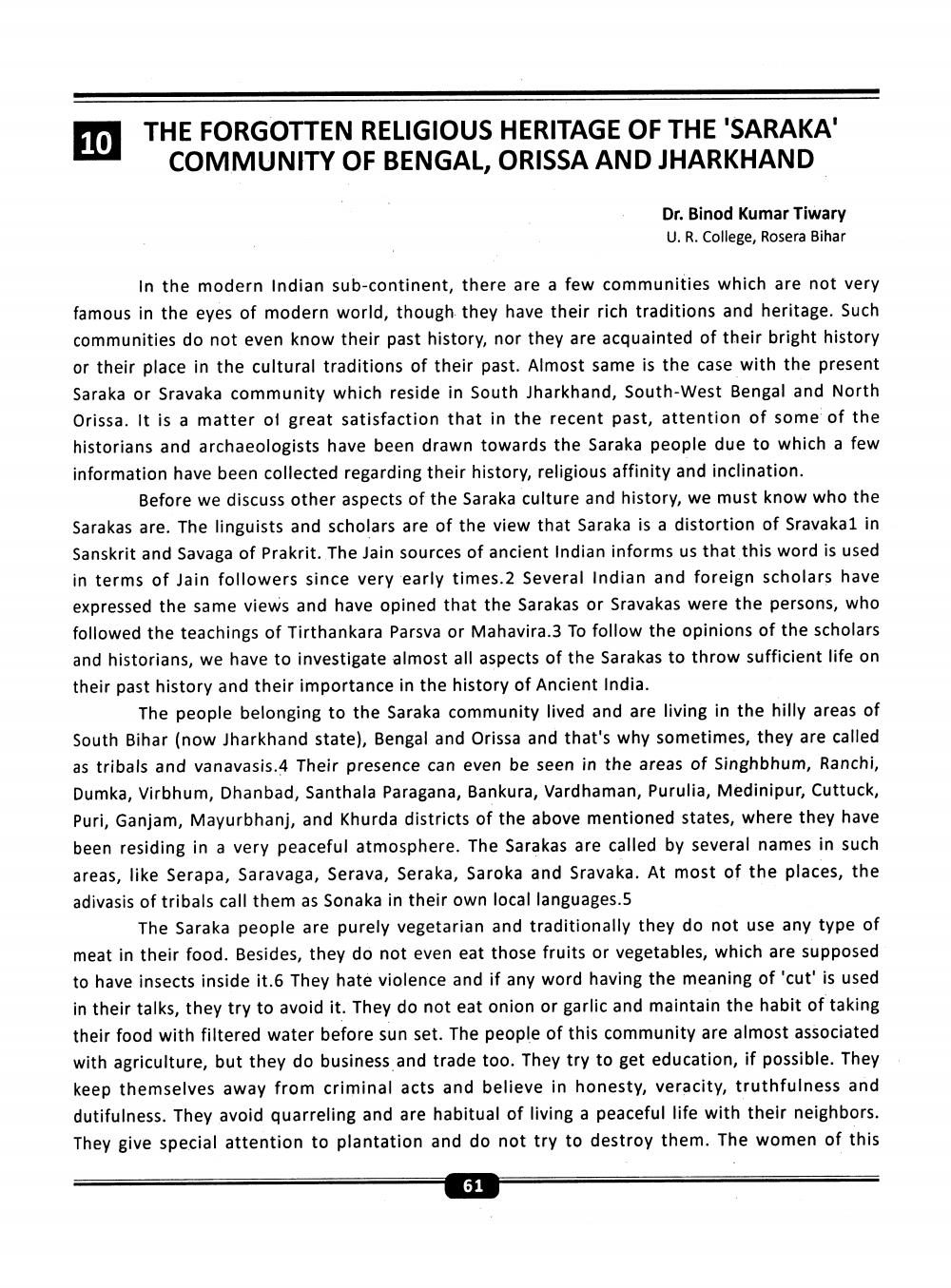________________
10
THE FORGOTTEN RELIGIOUS HERITAGE OF THE 'SARAKA' COMMUNITY OF BENGAL, ORISSA AND JHARKHAND
Dr. Binod Kumar Tiwary U. R. College, Rosera Bihar
In the modern Indian sub-continent, there are a few communities which are not very famous in the eyes of modern world, though they have their rich traditions and heritage. Such communities do not even know their past history, nor they are acquainted of their bright history or their place in the cultural traditions of their past. Almost same is the case with the present Saraka or Sravaka community which reside in South Jharkhand, South-West Bengal and North Orissa. It is a matter of great satisfaction that in the recent past, attention of some of the historians and archaeologists have been drawn towards the Saraka people due to which a few information have been collected regarding their history, religious affinity and inclination.
Before we discuss other aspects of the Saraka culture and history, we must know who the Sarakas are. The linguists and scholars are of the view that Saraka is a distortion of Sravaka1 in Sanskrit and Savaga of Prakrit. The Jain sources of ancient Indian informs us that this word is used in terms of Jain followers since very early times.2 Several Indian and foreign scholars have expressed the same views and have opined that the Sarakas or Sravakas were the persons, who followed the teachings of Tirthankara Parsva or Mahavira.3 To follow the opinions of the scholars and historians, we have to investigate almost all aspects of the Sarakas to throw sufficient life on their past history and their importance in the history of Ancient India.
The people belonging to the Saraka community lived and are living in the hilly areas of South Bihar (now Jharkhand state), Bengal and Orissa and that's why sometimes, they are called as tribals and vanavasis.4 Their presence can even be seen in the areas of Singhbhum, Ranchi, Dumka, Virbhum, Dhanbad, Santhala Paragana, Bankura, Vardhaman, Purulia, Medinipur, Cuttuck, Puri, Ganjam, Mayurbhanj, and Khurda districts of the above mentioned states, where they have been residing in a very peaceful atmosphere. The Sarakas are called by several names in such areas, like Serapa, Saravaga, Serava, Seraka, Saroka and Sravaka. At most of the places, the adivasis of tribals call them as Sonaka in their own local languages.5
The Saraka people are purely vegetarian and traditionally they do not use any type of meat in their food. Besides, they do not even eat those fruits or vegetables, which are supposed to have insects inside it.6 They hate violence and if any word having the meaning of 'cut' is used in their talks, they try to avoid it. They do not eat onion or garlic and maintain the habit of taking their food with filtered water before sun set. The people of this community are almost associated with agriculture, but they do business and trade too. They try to get education, if possible. They keep themselves away from criminal acts and believe in honesty, veracity, truthfulness and dutifulness. They avoid quarreling and are habitual of living a peaceful life with their neighbors. They give special attention to plantation and do not try to destroy them. The women of this
61




